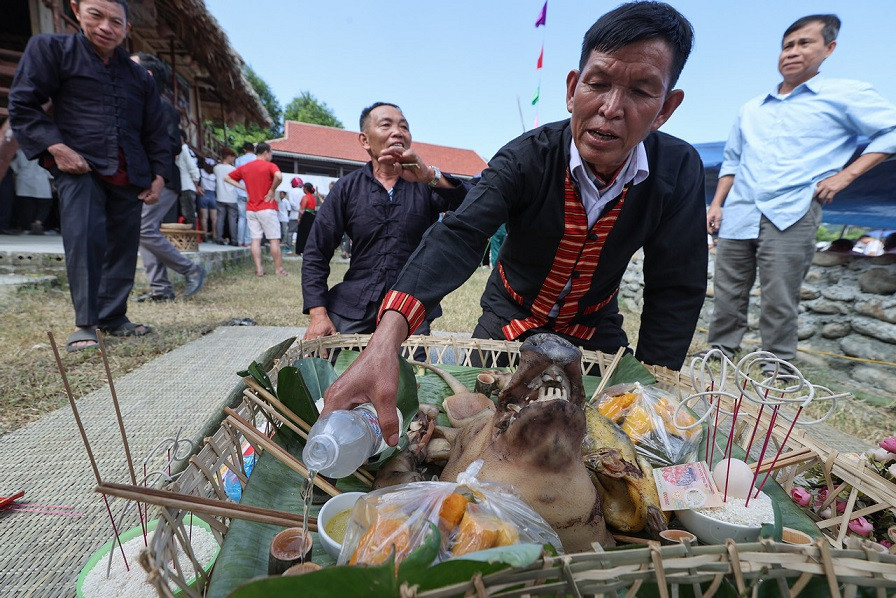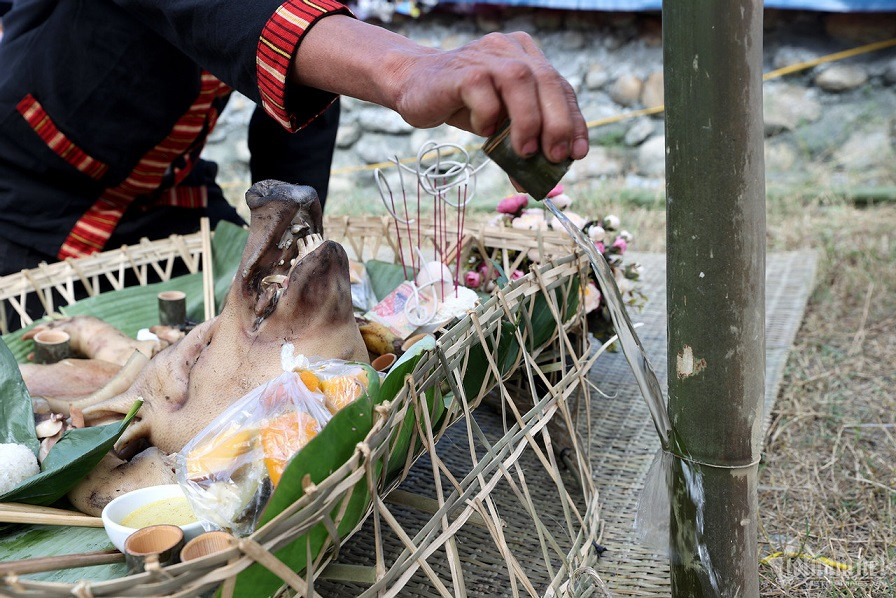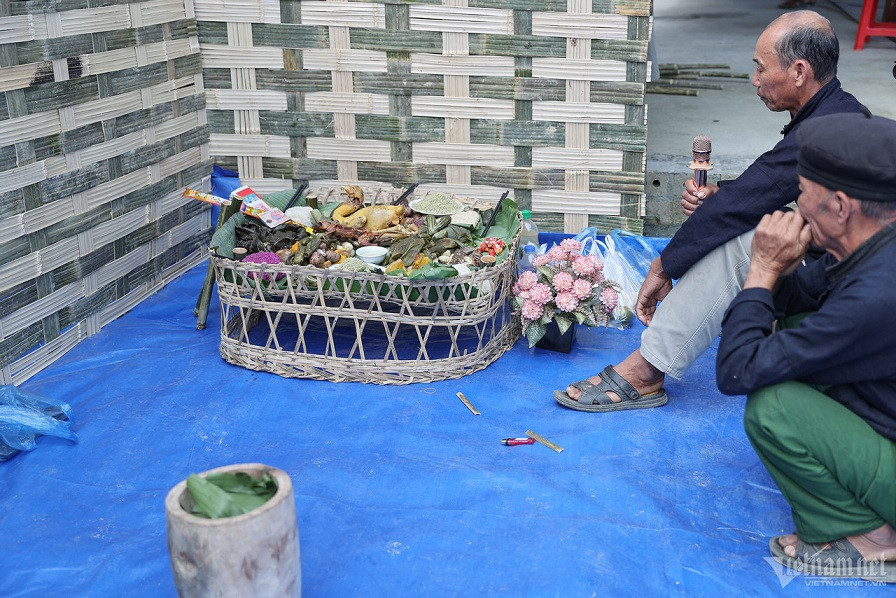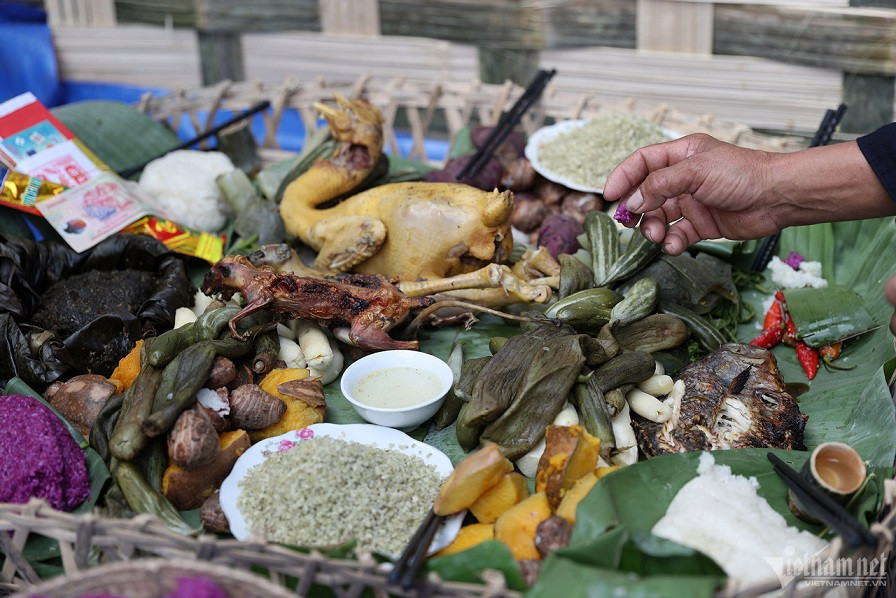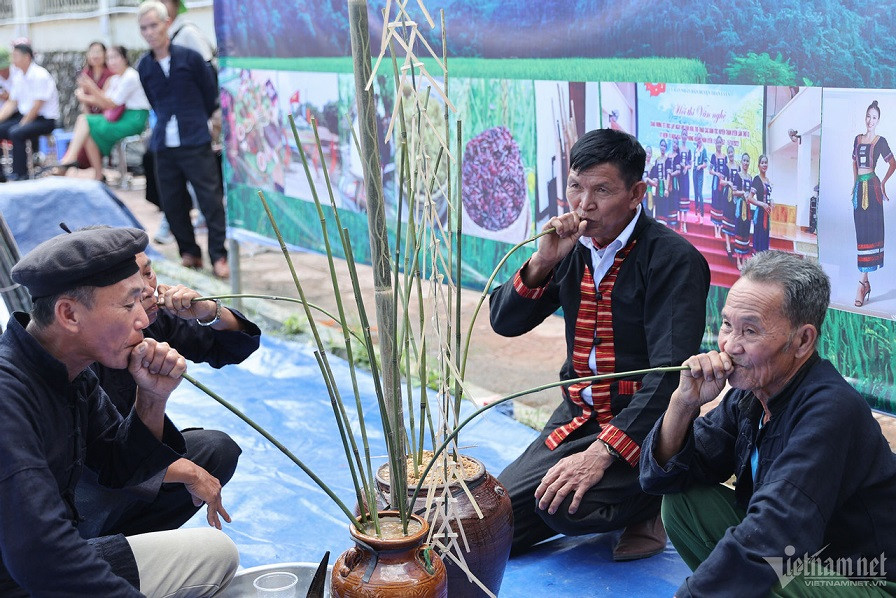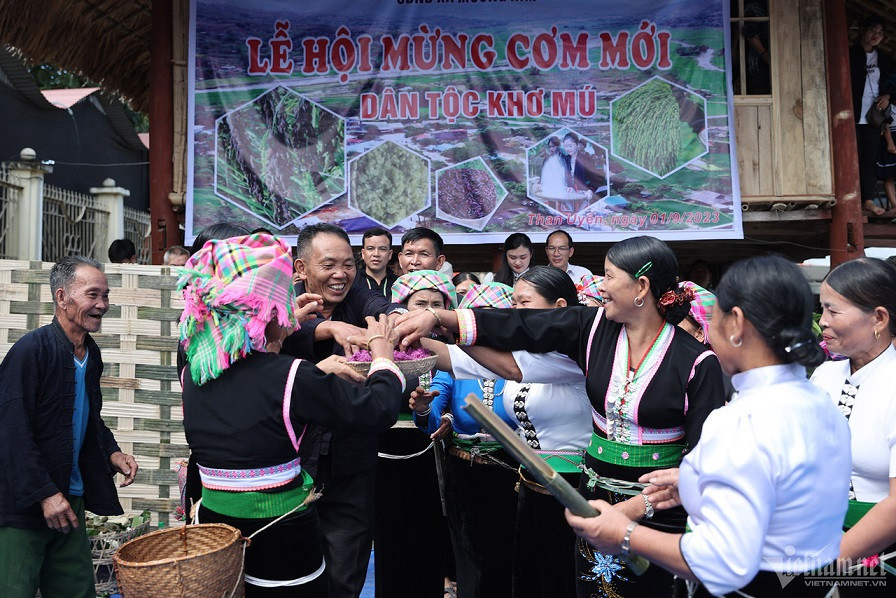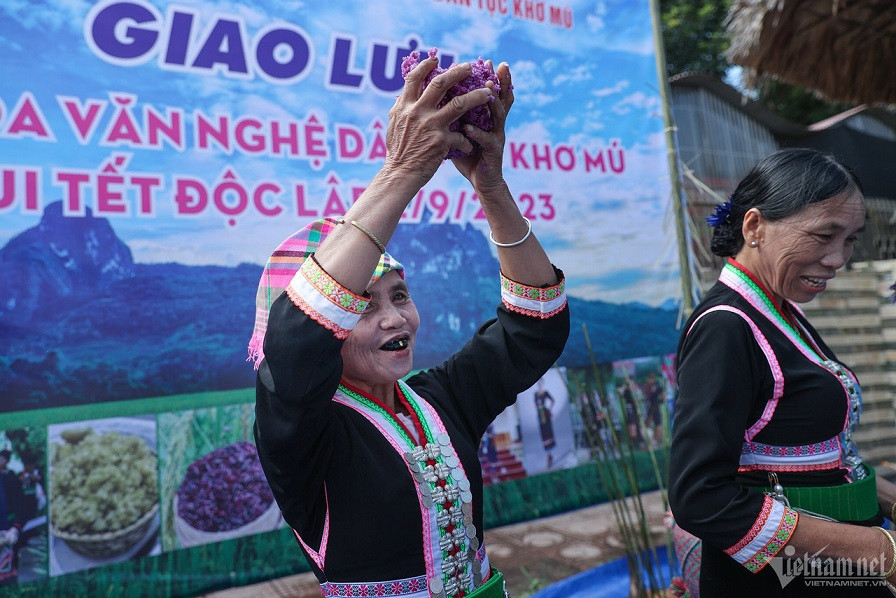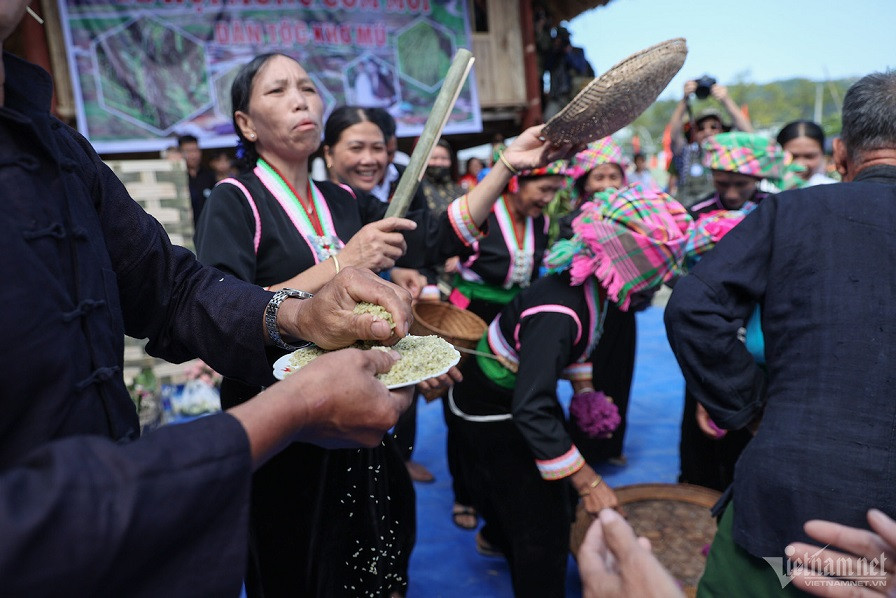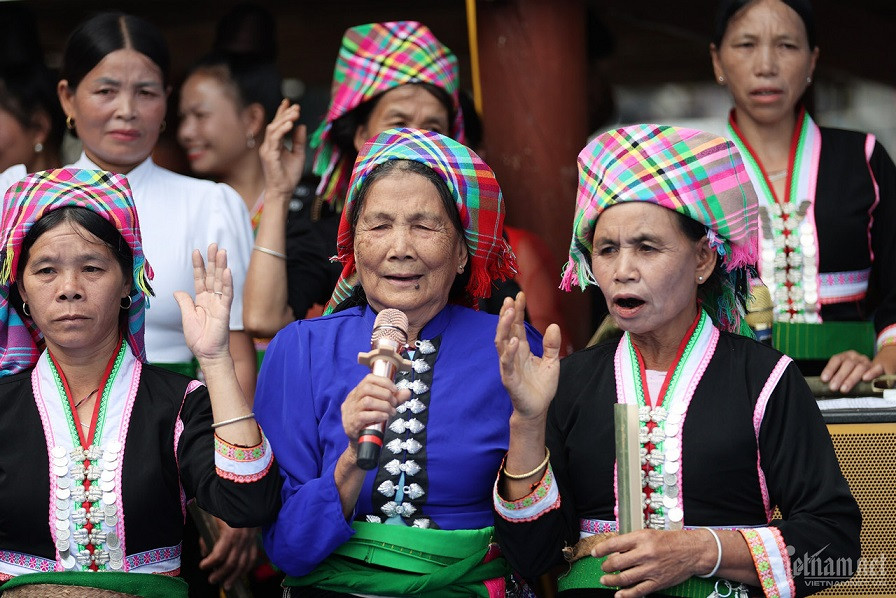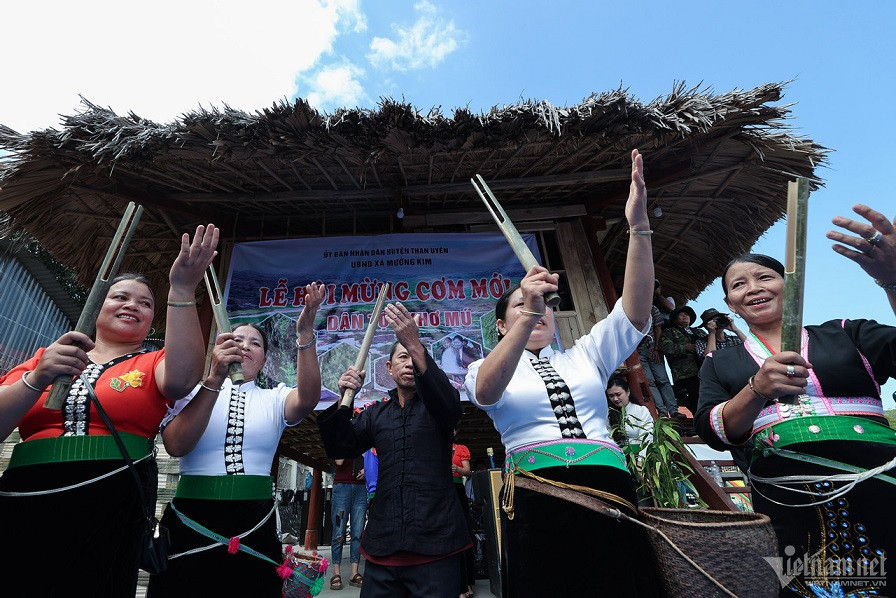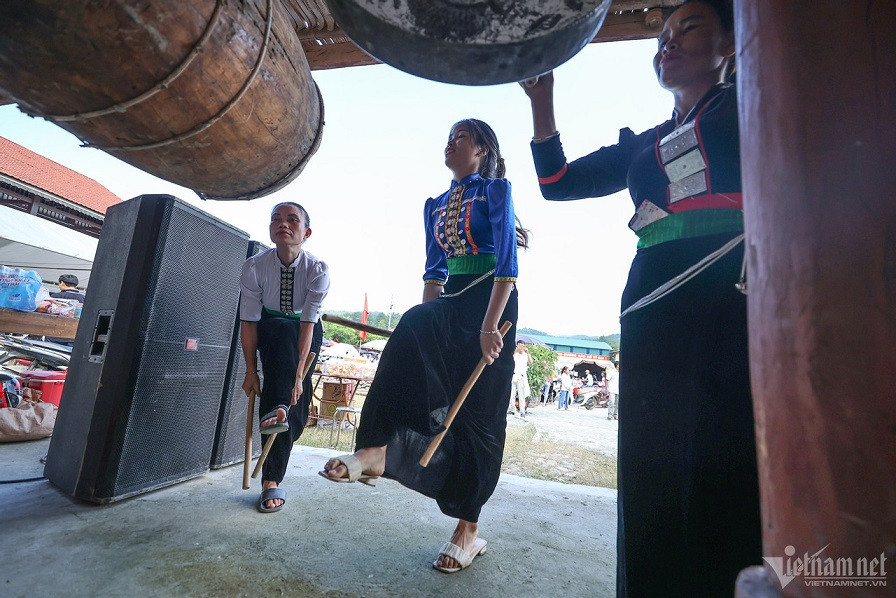This is an annual event which has been preserved by many generations of the Kho Mu people in Lai Chau province.
The Kho Mu people in Than Uyen district live mainly in Tham Phe village in Muong Kim commune, Me village in Ta Gia commune and Noong O and Noong Ma villages in Ta Hua commune. The traditional culture of the Kho Mu people is farming culture, bamboo culture and some characteristics reflected through their customs, beliefs and folk festivals.
During an agricultural farming cycle, after harvesting the crops, Kho Mu families offer new sticky rice to their ancestors with many unique offering rituals and fun activities. Each family organizes the new rice ceremony one day. One family follows another to create a festival season – the New Rice Festival.
Kho Mu people prepare many offerings for the new rice ceremony, such as can wine, distilled wine, a pair of roosters, white sticky rice, red sticky rice, vegetables and other products such as fish, crabs, mice, squirrels...
The new rice ceremony opens with the ritual "Inviting the Ancestors". The master of the ceremony respectfully invites the ancestors to attend the ceremony and prays to tell about the origin of the event.
The second ritual is to pray for good luck. The homeowner brings a bowl of red sticky rice with 2 coins inside to the middle of the house. The sticky rice bowl was poured onto the ground with the hostess saying: "Prospering". After that, attendants jostle each other to dig for the coins in the hope that they will have a new year with good health, good business, and a good harvest.
After this ritual, the ceremony master performs the fortune-giving ritual. The homeowner holds a plate of rice flakes, which contains 5 coins, and then sprinkles the green rice around 5 times. The Kho Mu people believe that whoever those coins fall on will be lucky next year.
The last ritual is singing to celebrate new rice. An old woman will represent the villagers to sing to celebrate the family's good harvest last year.
Besides the new rice offering ceremony, the Kho Mu people also organize other activities such as wine drinking contests, gong and drum dances...
